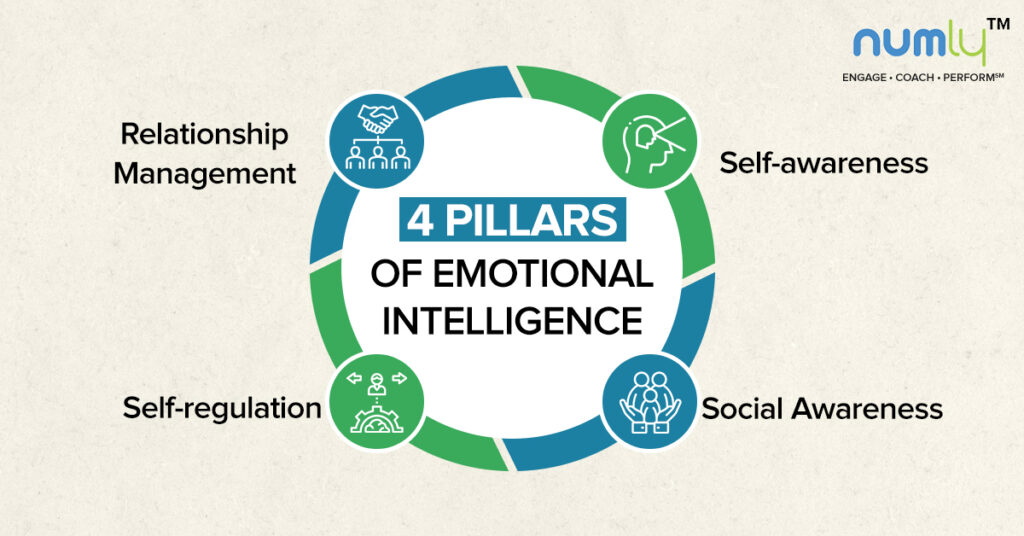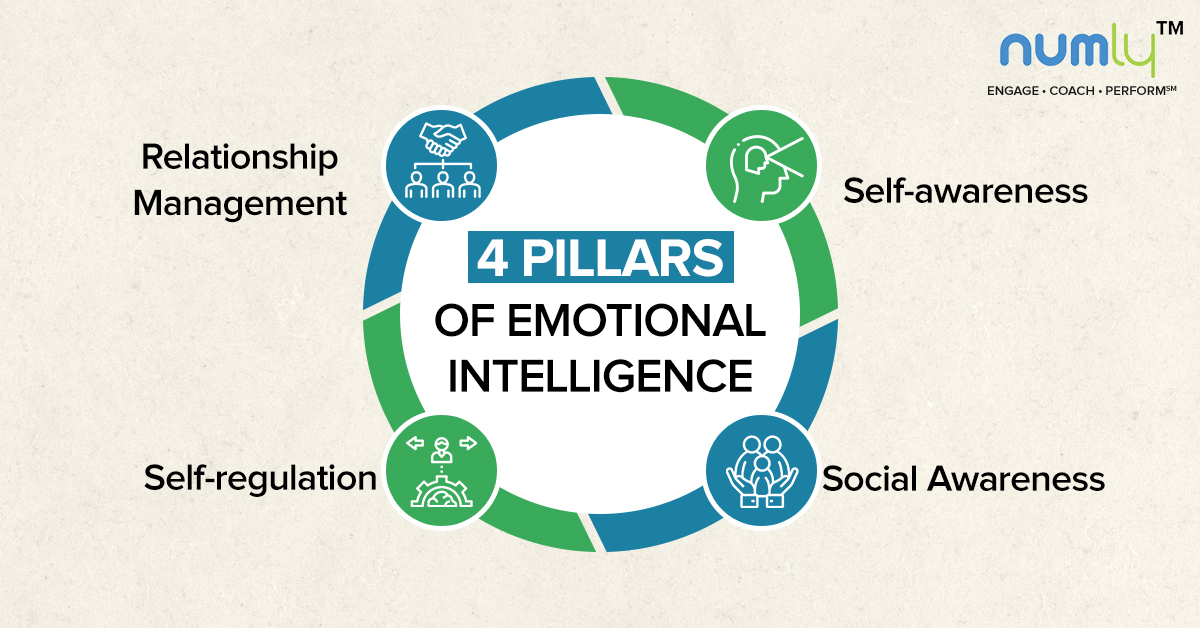
Why is Emotional Intelligence Important for Teens? A Comprehensive Guide
Navigating the teenage years is often described as a rollercoaster – a period marked by rapid physical, emotional, and social changes. During this critical phase of development, teens grapple with identity formation, peer pressure, academic stress, and the looming decisions about their future. Amidst this complexity, emotional intelligence (EI) emerges as a crucial skillset. But why is emotional intelligence important for teens? This article delves into the profound impact of emotional intelligence on teenagers, exploring how it shapes their relationships, academic performance, mental well-being, and future success.
Understanding Emotional Intelligence
Emotional intelligence, at its core, is the ability to recognize, understand, manage, and utilize emotions – both your own and those of others. It’s not about suppressing emotions, but rather about understanding their influence and responding effectively. A high level of emotional intelligence allows individuals to navigate social complexities, build strong relationships, and make informed decisions.
The concept of emotional intelligence encompasses several key components:
- Self-Awareness: Recognizing your own emotions and how they impact your thoughts and behavior.
- Self-Regulation: Managing your emotions effectively, including controlling impulsive reactions and adapting to changing circumstances.
- Motivation: Using your emotions to drive you towards goals and stay resilient in the face of setbacks.
- Empathy: Understanding and sharing the feelings of others.
- Social Skills: Building and maintaining positive relationships, communicating effectively, and resolving conflicts constructively.
The Importance of Emotional Intelligence for Teens
Why is emotional intelligence important for teens? The answer lies in the unique challenges and opportunities that adolescence presents. During this period, teens are not only navigating their own internal world but also learning to interact with the broader social landscape. Emotional intelligence provides the tools and skills necessary to thrive in this environment.
Improved Academic Performance
Contrary to popular belief, academic success isn’t solely dependent on intellectual prowess. Emotional intelligence plays a significant role in a teen’s ability to learn, focus, and perform well in school. Teens with high EI are better able to manage stress, stay motivated, and persevere through challenging coursework. They can also navigate social dynamics in the classroom, collaborate effectively with peers, and build positive relationships with teachers. [See also: Study Skills for Teenagers]
Stronger Relationships
Adolescence is a time when relationships with peers and family become increasingly important. Emotional intelligence equips teens with the skills to build and maintain healthy relationships. Empathy allows them to understand and respond to the needs of others, while social skills enable them to communicate effectively, resolve conflicts constructively, and build trust. These skills are essential for navigating the complexities of friendships, romantic relationships, and family dynamics.
Enhanced Mental Well-being
The teenage years can be a stressful and emotionally challenging time. Teens with high emotional intelligence are better equipped to cope with stress, manage anxiety, and build resilience. Self-awareness allows them to recognize their own emotional triggers and develop healthy coping mechanisms. Self-regulation helps them to control impulsive reactions and avoid engaging in risky behaviors. By understanding and managing their emotions effectively, teens can protect their mental well-being and build a strong foundation for future mental health.
Better Decision-Making
Teens are constantly faced with decisions, both big and small, that can have a significant impact on their lives. Emotional intelligence helps them to make more informed and rational decisions by considering the emotional implications of their choices. They are less likely to be swayed by impulsive emotions or peer pressure and more likely to consider the long-term consequences of their actions. This ability is crucial for making sound decisions about academics, relationships, and future career paths.
Increased Self-Esteem and Confidence
As teens develop a better understanding of themselves and their emotions, they gain a greater sense of self-esteem and confidence. They are more comfortable in their own skin and less likely to be influenced by negative self-talk or external criticism. This increased self-assurance allows them to take risks, pursue their goals, and embrace new challenges. The development of emotional intelligence allows teens to navigate the complexities of social interactions with more confidence.
Improved Communication Skills
Effective communication is a cornerstone of healthy relationships and successful interactions. Emotional intelligence enhances a teen’s ability to communicate clearly, empathetically, and assertively. They are better able to express their own needs and feelings while also understanding and responding to the needs and feelings of others. This improved communication fosters stronger connections with peers, family members, and teachers.
Greater Career Success
While career success may seem distant during the teenage years, the skills developed through emotional intelligence are highly valued in the workplace. Employers are increasingly seeking individuals who can work effectively in teams, communicate clearly, and resolve conflicts constructively. Teens with high EI are better prepared to succeed in their future careers, regardless of their chosen field. The ability to understand and manage emotions is paramount in leadership roles and client-facing positions. [See also: Career Planning for High School Students]
How to Develop Emotional Intelligence in Teens
The good news is that emotional intelligence is not a fixed trait; it can be developed and improved over time. There are several strategies that parents, educators, and teens themselves can use to foster the growth of EI:
- Encourage Self-Reflection: Encourage teens to think about their emotions and how they impact their behavior. Journaling, mindfulness exercises, and open conversations can help them to develop greater self-awareness.
- Model Emotional Regulation: Parents and educators can model healthy emotional regulation by demonstrating how to manage their own emotions effectively. This includes expressing emotions appropriately, coping with stress constructively, and resolving conflicts peacefully.
- Teach Empathy: Help teens to understand and appreciate the perspectives of others. Encourage them to listen actively, ask questions, and consider how their actions might affect others.
- Provide Opportunities for Social Interaction: Create opportunities for teens to interact with peers in positive and supportive environments. This can include extracurricular activities, volunteer work, and social events.
- Seek Professional Guidance: If a teen is struggling with emotional challenges, consider seeking professional guidance from a therapist or counselor. Therapy can provide a safe and supportive space to explore emotions, develop coping mechanisms, and build emotional resilience.
Conclusion: Investing in Emotional Intelligence for a Brighter Future
Why is emotional intelligence important for teens? The answer is multifaceted and far-reaching. Emotional intelligence is not merely a desirable trait; it’s a fundamental skill that empowers teens to navigate the complexities of adolescence, build strong relationships, succeed academically, protect their mental well-being, and prepare for a brighter future. By investing in the development of emotional intelligence, parents, educators, and teens themselves can pave the way for a more fulfilling and successful life. As they learn to understand and manage their emotions, teens gain the resilience, empathy, and social skills necessary to thrive in an increasingly complex and interconnected world. The development of emotional intelligence in teens is an investment in their future success and well-being. It is essential for navigating the challenges of adolescence and building a strong foundation for adulthood. By fostering self-awareness, self-regulation, empathy, and social skills, we can empower teens to become emotionally intelligent individuals who are capable of leading fulfilling and meaningful lives. The importance of emotional intelligence for teens cannot be overstated. It is a critical skill that will benefit them throughout their lives, shaping their relationships, careers, and overall well-being. Recognizing and nurturing emotional intelligence in teenagers is a vital step towards creating a generation of resilient, empathetic, and successful individuals. The impact of emotional intelligence extends beyond individual success, contributing to a more compassionate and understanding society as a whole.

